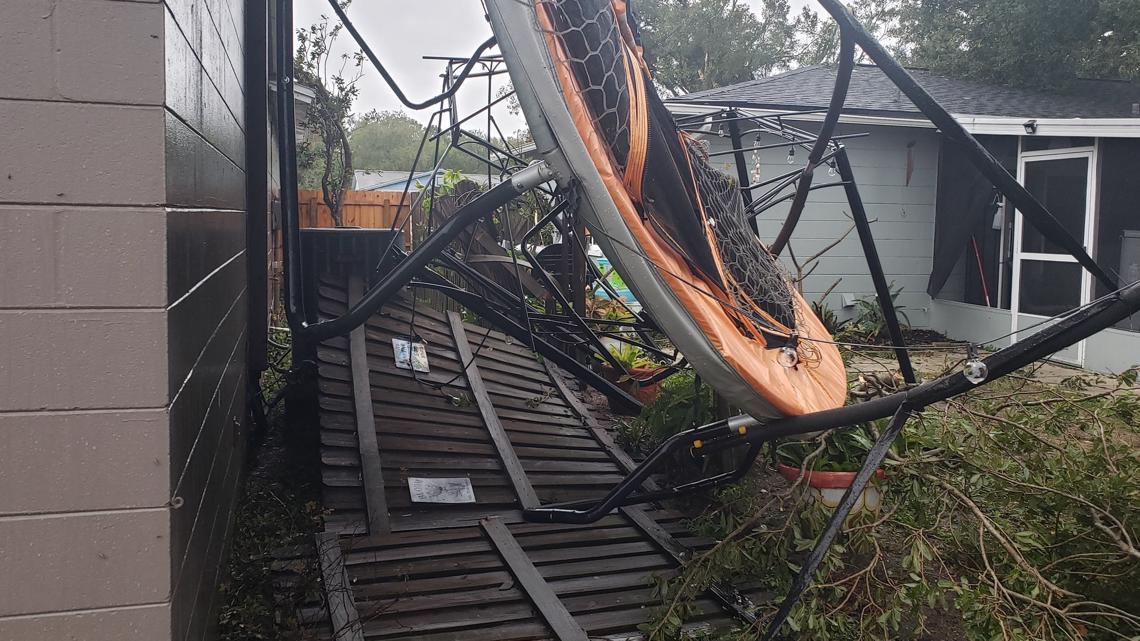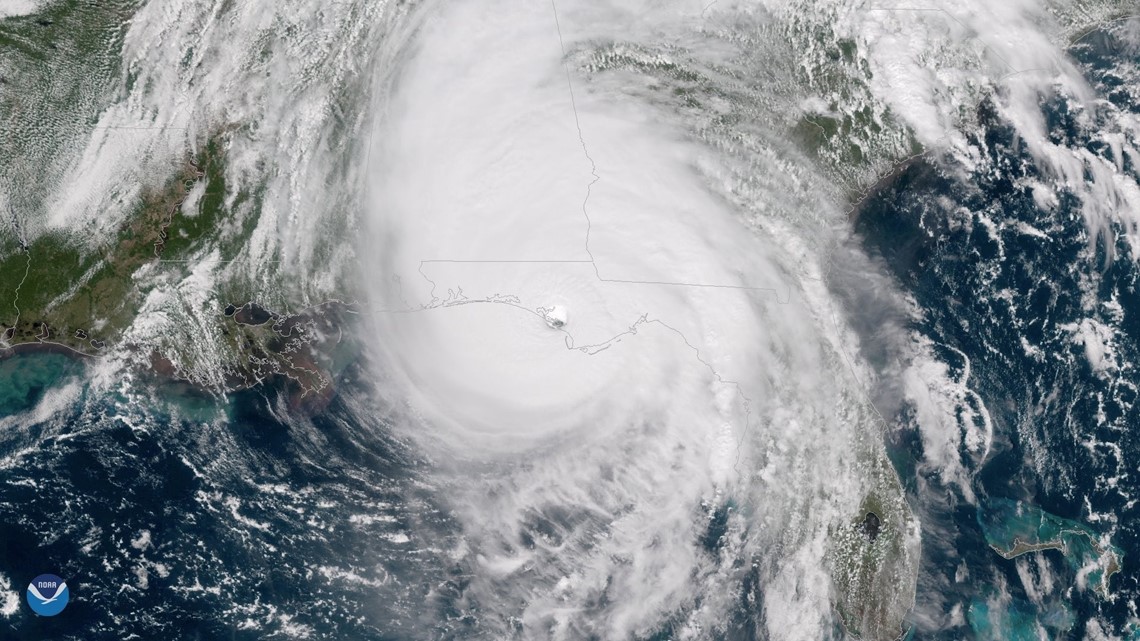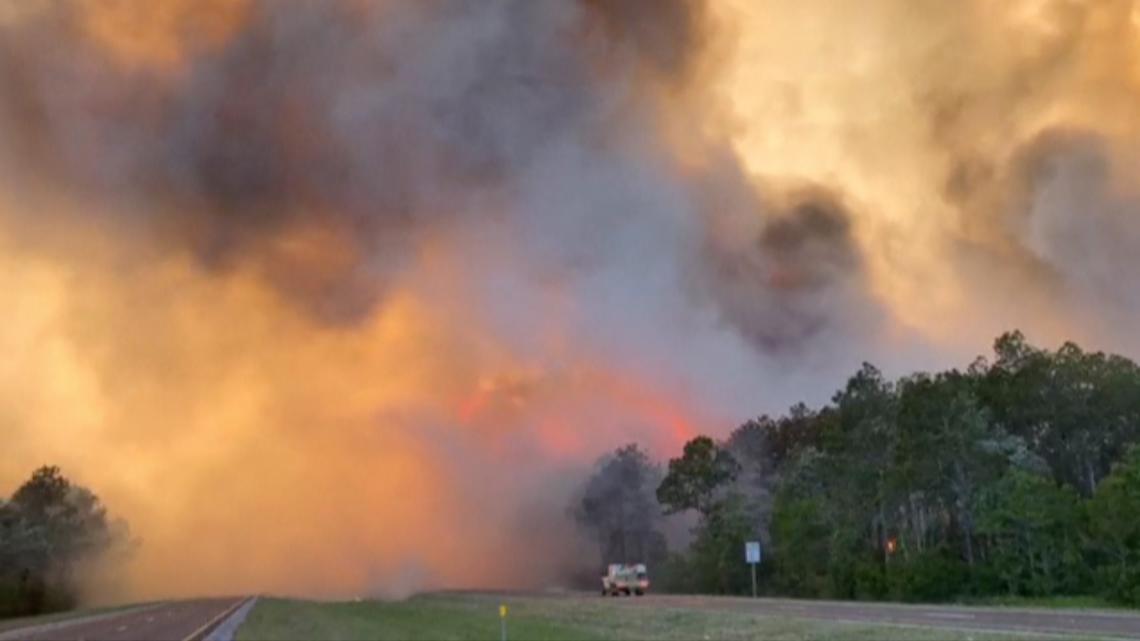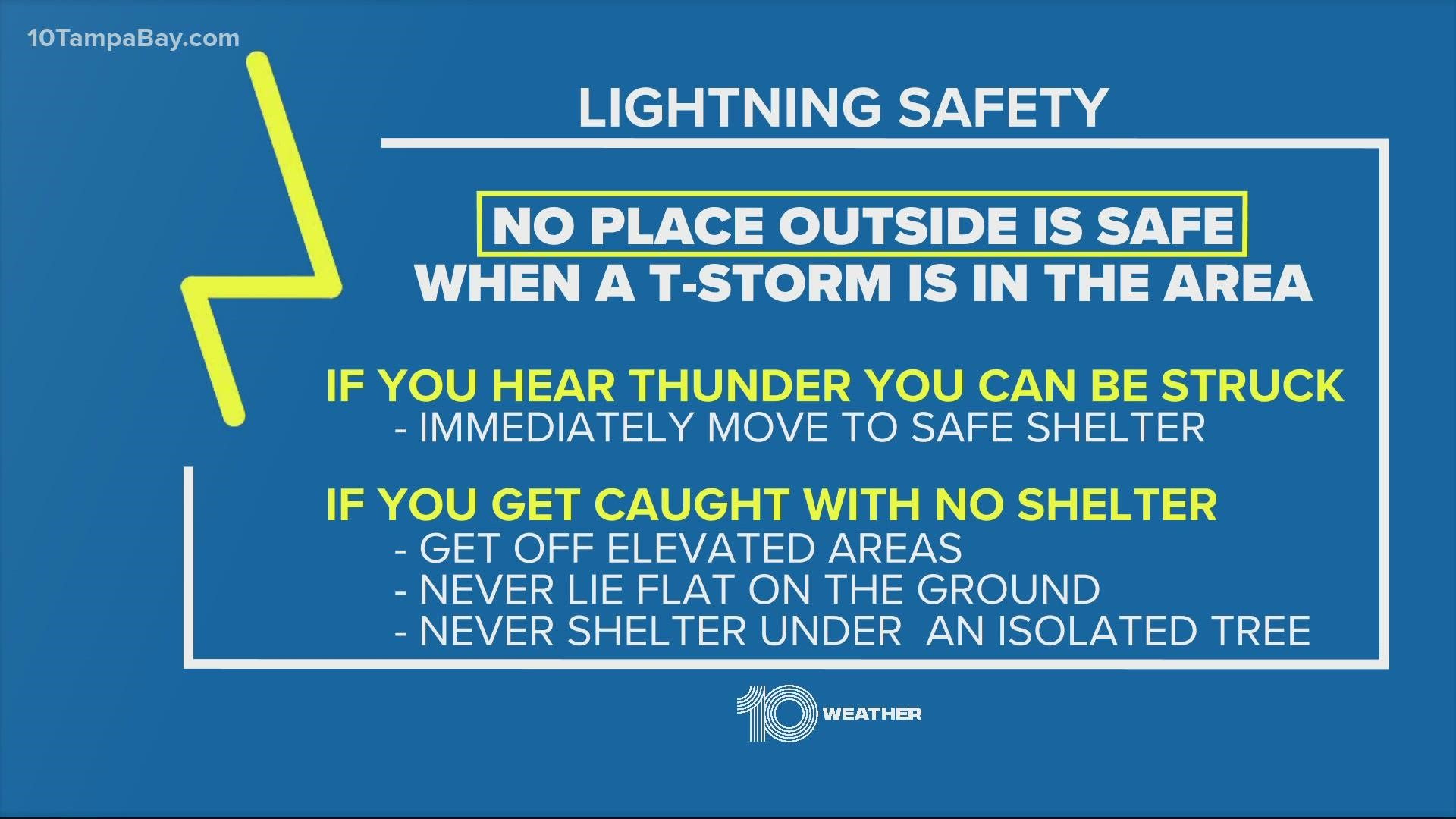ST. PETERSBURG, Fla. — Oh, the Sunshine State.
At times, Florida's famous nickname can be a bit deceitful.
Despite the "I live where you vacation" climate, the southernmost continental U.S. state sees all types of severe weather year-round. Floridians know that a thoughtfully planned-out sunny summer beach day can turn dicey in a matter of minutes.
To help residents prepare for the worst, the Florida Division of Emergency Management designated Feb. 7-11 as the state's Severe Weather Awareness Week. It's a time for Floridians to plan ahead for the possible impacts of severe weather and natural disasters.
From lightning safety to tropical storms, each day this week will highlight different weather-related hazards you may encounter while living in Florida.
Here's how to prepare for them:
🌩️ Monday: Lightning


"When thunder roars, go indoors!"
The "Lightning Capital of the U.S." sees roughly 70-100 days a year with at least one thunderstorm. Due to the frequency of storms in Florida, lightning is one of the most deadly weather hazards in the state.
A simple reminder: If you can hear thunder, you are close enough to be struck by lightning. Lightning occurs with every thunderstorm, and it can strike 5-10 miles outside of a storm.
If you're outdoors and hear a rumble in the distance, it's important to stop swimming or any other activities and head inside. Once indoors, you'll want to get as far away from windows and electrical devices.
Have a way to get alerts before planning a day outdoors, and watch for signs of approaching storms while outside.
🌊 Tuesday: Marine hazards and rip currents


The beautiful Gulf Coast is one of Florida's main attractions. Marine hazards can persist even on the nicest of days, so it's best to be prepared anytime you plan to head to the water.
Whenever possible, swim at a lifeguard-protected beach. Before heading out on the boat, check the forecast ahead of time.
Pay attention to beach warning flags, where they exist:
- Double Red Flag: Water Closed to Public
- Red flag: "High Hazard": High surf and/or strong currents
- Yellow "Medium Hazard" Flag: Moderate surf and/or currents
- Green "Low Hazard" Flag: Calm conditions, exercise caution
- Purple Flag: Dangerous marine life
Beachgoers should also swim at least 100 feet away from piers and jetties to avoid rip currents.
🌪️ Wednesday: Thunderstorms and tornadoes


Florida is no "Tornado Alley," but we get our fair share of severe storms and tornadoes year-round.
First, it's good to know the signs of a tornado:
- Strong, consistent rotation in a cloud base.
- Loud continuous roar or rumble that doesn't fade quickly like thunder.
- Whirling dust or debris on the ground under a cloud base.
You should always have a plan in place in case a tornado impacts your area.
Found yourself in a tornado-warned area? Seek shelter immediately by staying inside an enclosed, structured building away from windows. Go to the lowest level of the building and put as many walls in-between you and the outside world as possible.
Never shelter in a car during a tornado.
Always have a way to receive weather alerts to stay up-to-date on tornado watches and warnings.
🌀 Thursday: Hurricanes and flooding


We can't talk about weather preparedness in Florida without dedicating a day to one of the state's biggest threats: hurricanes.
Tropical systems can unleash a slew of weather hazards, like tornadoes, flooding and dangerous storm surge.
It's imperative to develop individualized disaster preparedness plans for families, businesses and individuals with special needs. Know your evacuation routes and stock a disaster supply kit for at least seven days. It's best to have your hurricane kit ready well before the start of hurricane season.
Anyone living in the state should consider purchasing flood insurance. Just one inch of floodwater can put a dent in the wallet by causing more than $25,000 in damages. Each year, review all insurance policies and ensure coverage is up to date.
Many areas around Tampa Bay are susceptible to flooding, even from the weakest of storm systems. It's always best to "turn around, don't drown" when you encounter flooded roads.
🔥 Friday: Temperature extremes and wildfires


The heat and high humidity in Florida are hazards on their own.
It's always important to stay hydrated and wear lightweight and light-colored clothing during the summer months to avoid heat-related illnesses.
Wildfires in Florida can occur during the dry season. When wildfires ignite, evacuate immediately if told to do so by officials. Use an N-95 mask to help prevent smoke inhalation, and stay up-to-date on active fires and fire weather conditions.
Although Florida is better known for the sunshine and heat, cold snaps during the winter happen on occasion and can catch residents off guard. When temperatures fall near or below freezing, remember to protect the "Four P's": people, pets, plants and pipes.
You can read more about Severe Weather Awareness Week on the Florida Division of Emergency Management's website.
While we have a few more months until hurricane season, 10 Tampa Bay is your Hurricane Headquarters when the time comes. You can find evacuation zone maps, interactive tropical trackers and up-to-date forecasts right here when the tropics start to heat up.

